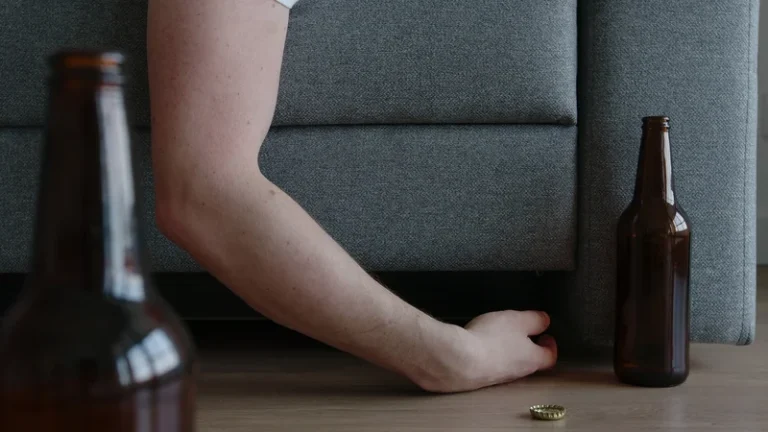
In addition, 76.2 percent of respondents had not been informed that benzodiazepines are approved for short-term use only and that discontinuation might be difficult. The best resource in your quest to quit benzodiazepines is your prescribing doctor. If you prefer someone else, any primary care physician or psychiatrist can help you taper your dose. If you are pregnant or are thinking about becoming pregnant, talk to your OBGYN or psychiatrist about your plans. However, going through any withdrawal during pregnancy also has its risks.
Teen Drug Abuse Statistics
- For long-term benzodiazepine users, this is a tidal shift in thinking, and will take time, reinforcement, and assurance that the prescriber will help them though the withdrawal and recovery processes.
- Grasping the intricacies of withdrawal symptoms, engaging effective coping methods for managing those symptoms and, when necessary, seeking professional medical assistance are all essential elements of the successful management of this process.
- Typically, this is a combination of therapy and pharmacologic support.
- These factors don’t guarantee you’ll have severe withdrawal symptoms, but they can increase your vulnerability.
In Scotland, a survey of 55 prescribers, found that two-thirds were prescribing benzodiazepines for people who use opioids and were dependent on benzodiazepines and ~ 80% would be willing to prescribe. Those who did benzodiazepine withdrawal not prescribe cited insufficient evidence, local guidance, organisational preferences for patient self-detoxification, difficulties monitoring on top use and potential harms leading to drug related death 53. A systematic review of qualitative studies highlighted ambivalence among GPs towards prescribing benzodiazepines (not in relation to opioid co-use) and inconsistently applied strategies for managing their use. Prescribing decision making was ‘often uncomfortable, demanding and complex within the time and pressure constraints of daily practice’. Tensions between helping patients and minimising benzodiazepine prescribing were managed on an individual basis 67. Such patient-centred treatment could support prescribing decision making.
- The physician must also assist and guide the patient through this critical recovery period.
- They should never quit benzos suddenly without first consulting a professional and developing a plan with them.
- English speaking adults were eligible to participate if they currently—or in the last six months—co-used prescribed and/or illicit opioids (e.g. heroin, OAT) and benzodiazepines (e.g. diazepam) or z-drugs (e.g. zopiclone).
- This can take a long time, and it may be best to plan for an 18-month process – sometimes longer – particularly if benzodiazepines have been taken for a long period of time.
The importance of medically supervised opiate detox
They want to taper the patients off the benzodiazepines, but the patients are convinced that they need the drugs, and that their symptoms must be related to other diseases. Continuing the prescription of benzodiazepines will please the patient, but not cure the problems. On the other hand, mandated tapers, without complete understanding and assent by the patient, often fail. Numerous risk factors can make an individual susceptible to heroin dependency. A family history of substance abuse increases the likelihood of an individual developing substance abuse problems, including opioid dependence and heroin addiction. Genetic predispositions, including specific genes such as OPRM1 and BDNF, have been linked to an increased susceptibility to drug addiction.

The Dangers of Cocaine Withdrawal and How Medical Detox Helps

In more severe cases, withdrawal can cause confusion, paranoia, hallucinations, and seizures. Mayflower Recovery in Wilmington, MA has created the premier state-of-the-art detox and inpatient addiction treatment facility in New England. If you or a loved one are suffering from drug and alcohol substance use disorder. Cognitive Behavioral Therapy (CBT) is often utilized to address psychological aspects of dependence.

I Think I’m Going Through Marijuana Withdrawal
Research showed that 40% of people taking benzos for longer than 6 months experienced moderate-to-severe withdrawal symptoms. If you take an intermediate-acting benzodiazepine, like alprazolam, or a long-acting benzodiazepine, like diazepam, it may take longer for withdrawal symptoms to appear. Short-acting benzodiazepines, like triazolam, pass quickly through the body, so you’ll likely experience withdrawal symptoms sooner — sometimes within a matter of hours. If you want to stop taking benzodiazepines after consistent long-term use, your doctor can help you gradually taper off your medication. Tapering can help take the edge off withdrawal symptoms like tremors and nausea, though it may not prevent withdrawal symptoms entirely. Benzodiazepines are a powerful what is alcoholism class of medication used to treat anxiety, insomnia, and panic disorder.
- Peer researchers received interviewing training adapted from 36 and project specific information (e.g. topic guide).
- Stopping benzodiazepines all at once can be dangerous, so your doctor will likely guide you through a tapering regimen that involves gradually reducing your dose over time.
- All interview participants provided written informed consent to participate in the study, and consent for anonymised quotes from their interviews to be included in published work.
- It was prescribed by another physician who had since retired, and she insisted that it was the only thing that helped her symptoms.